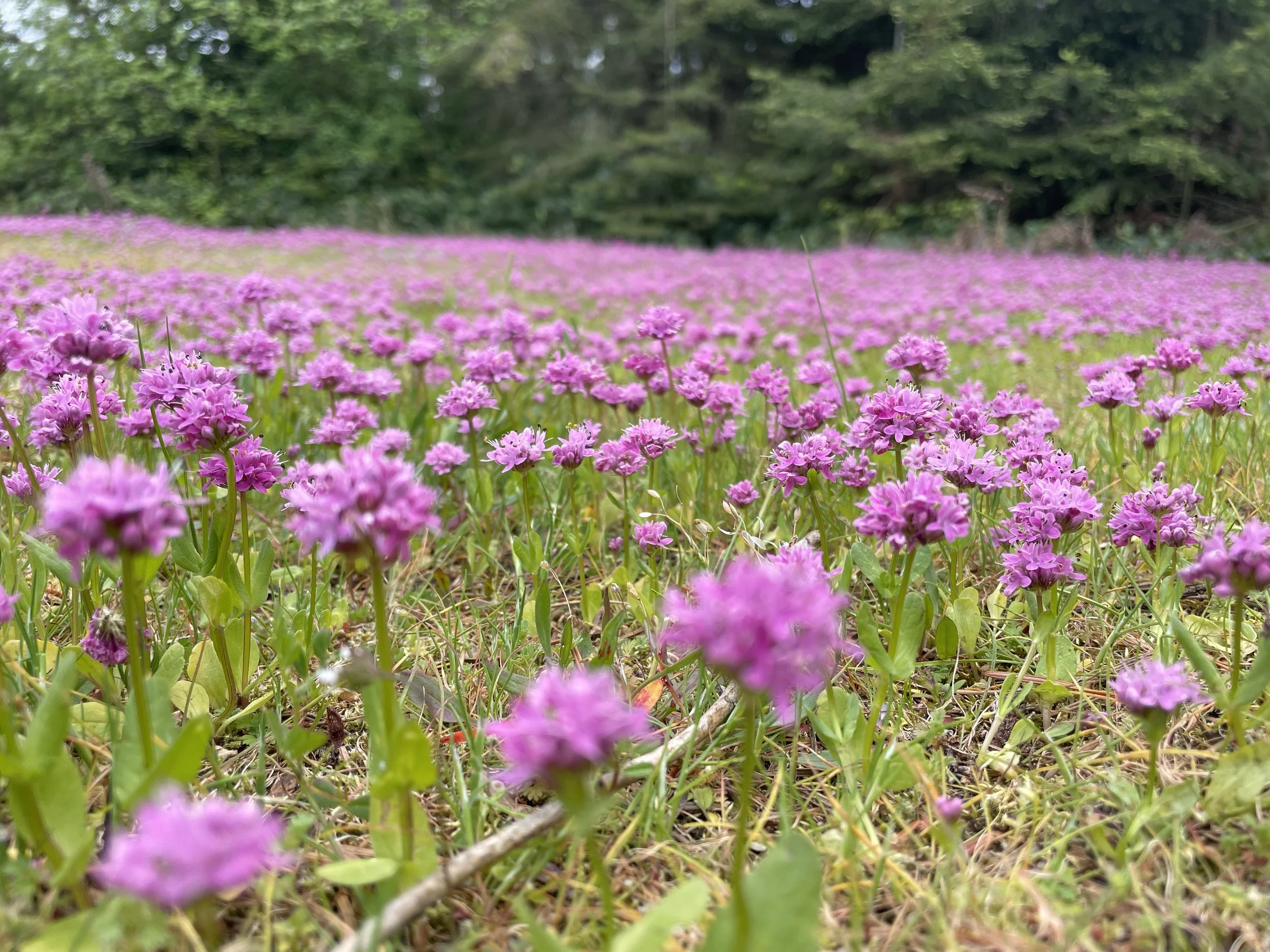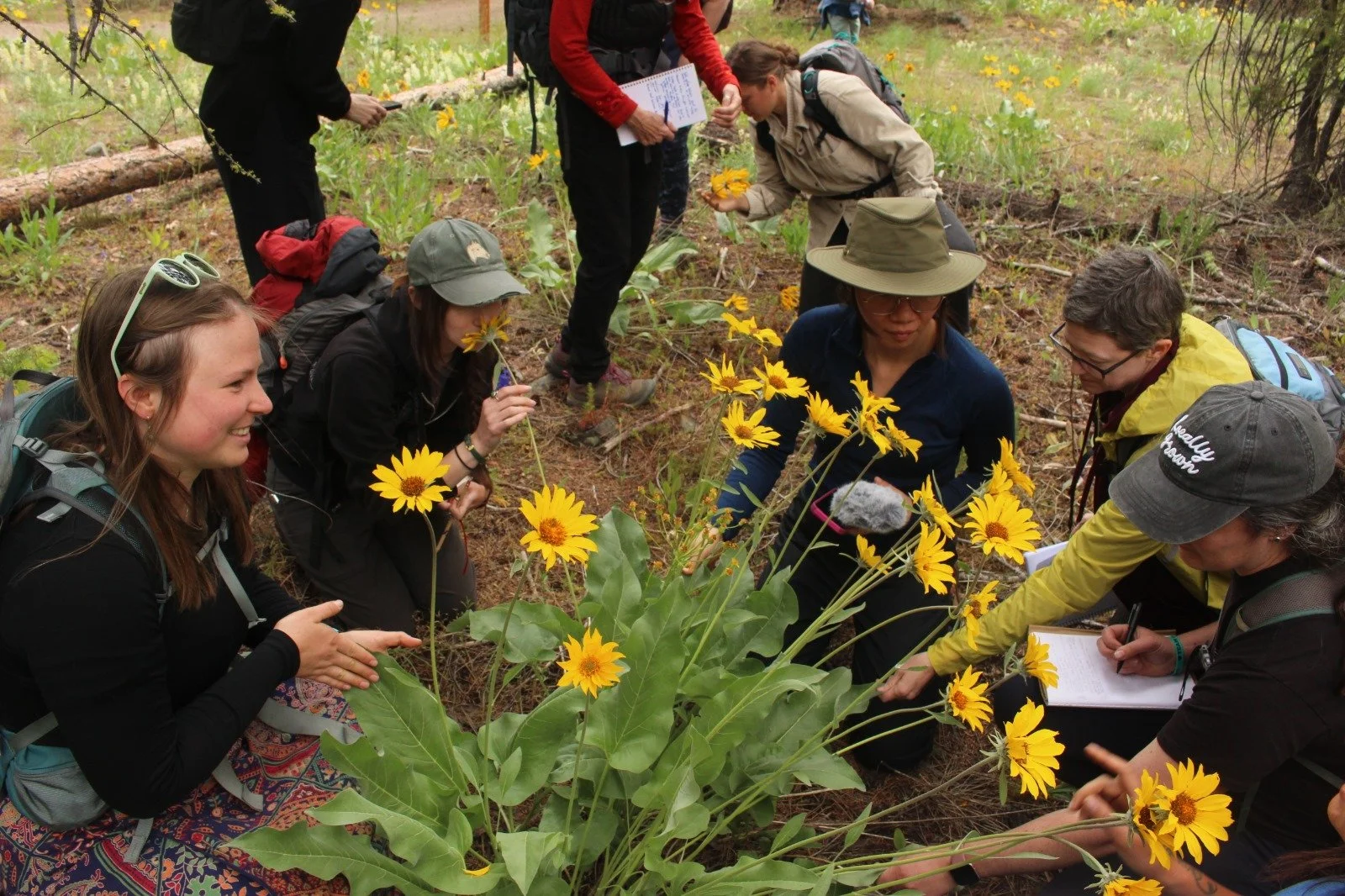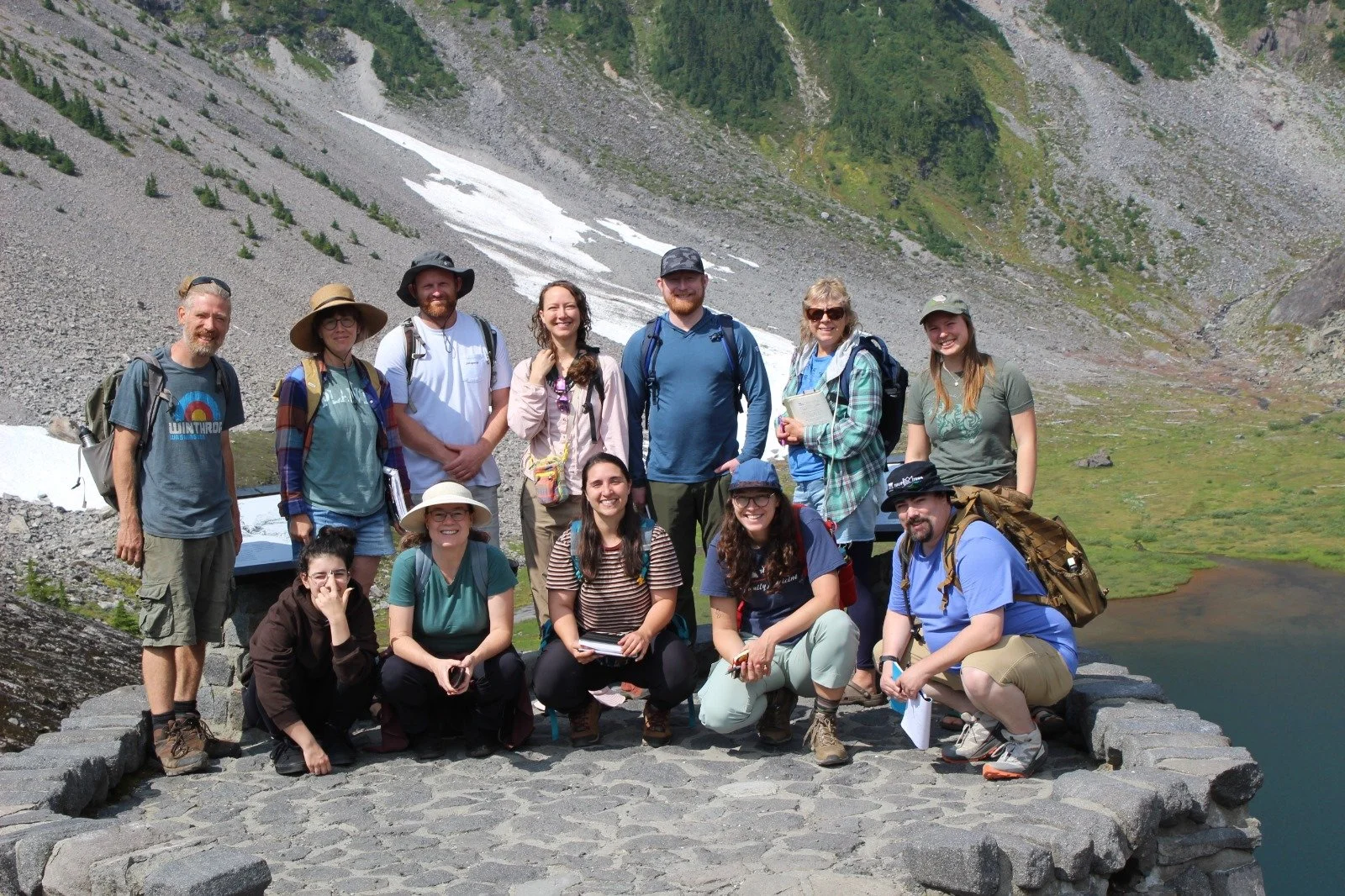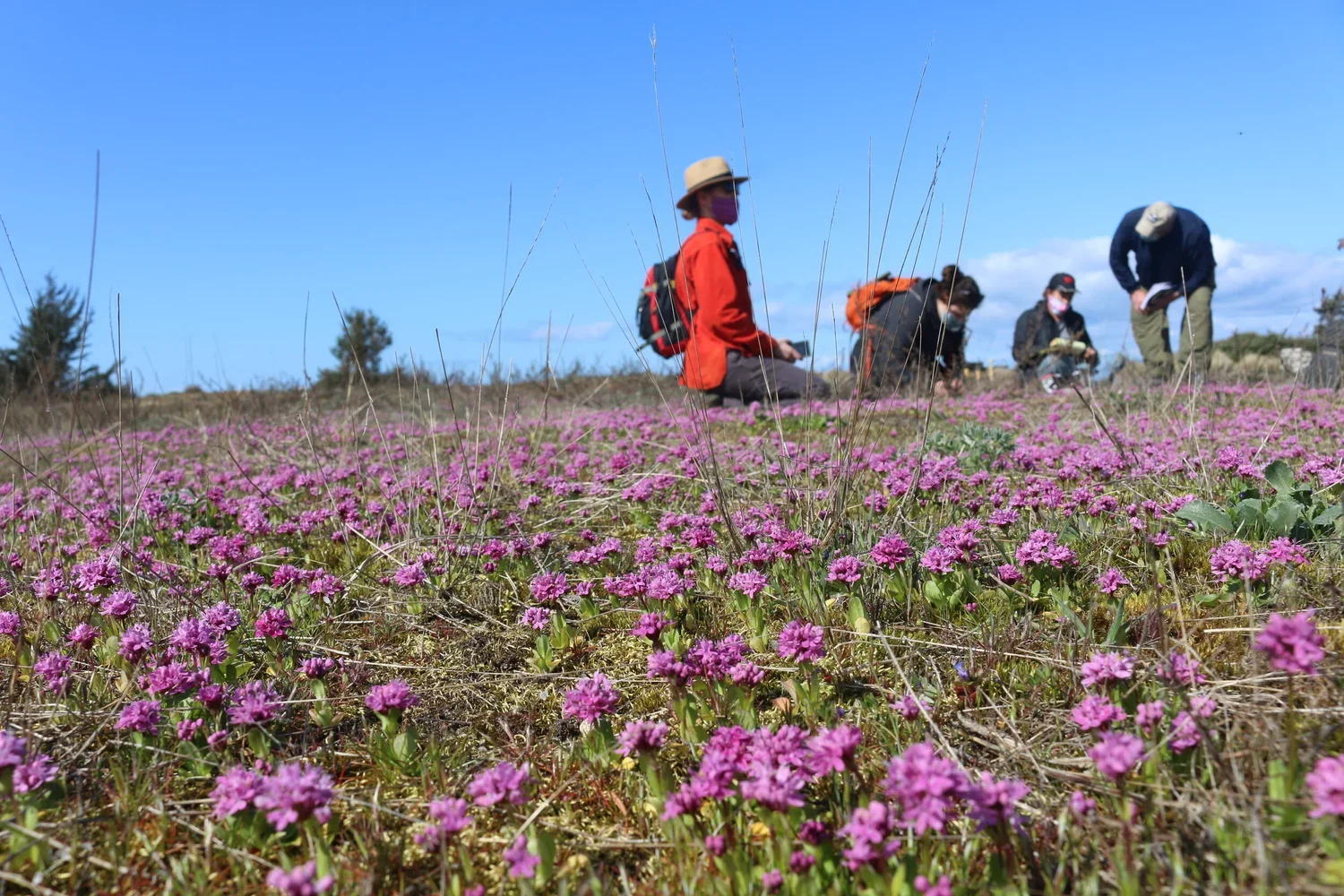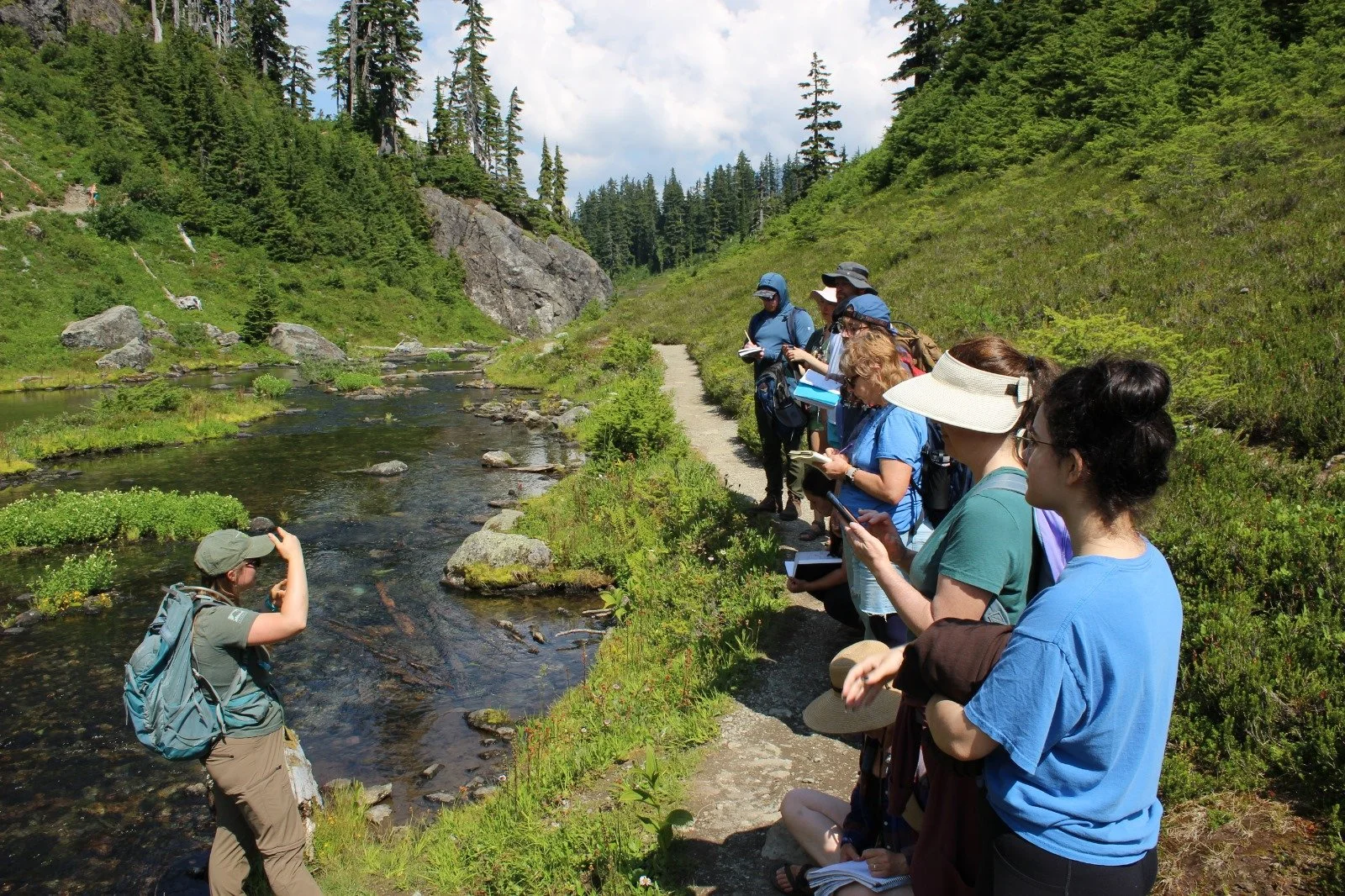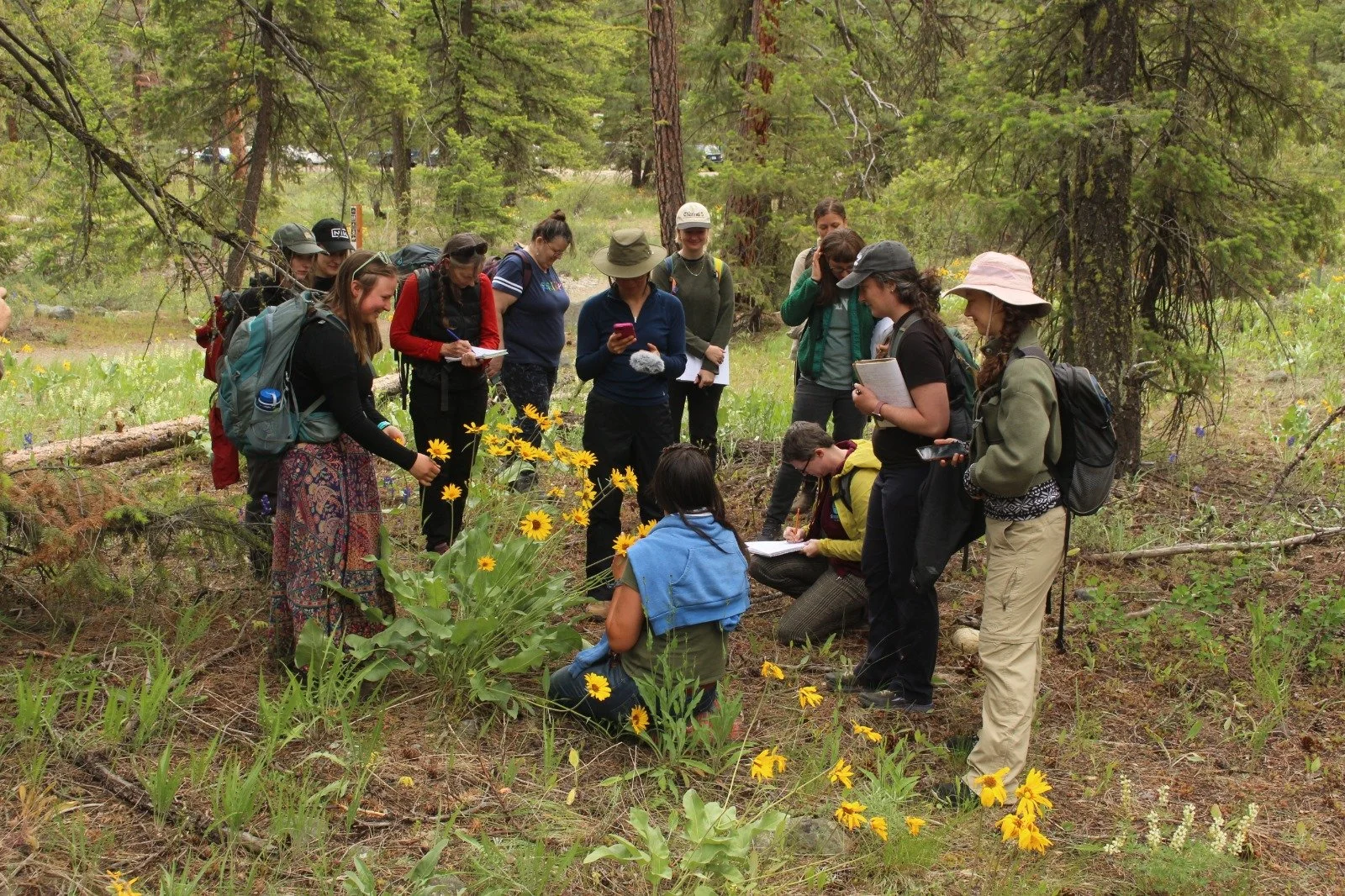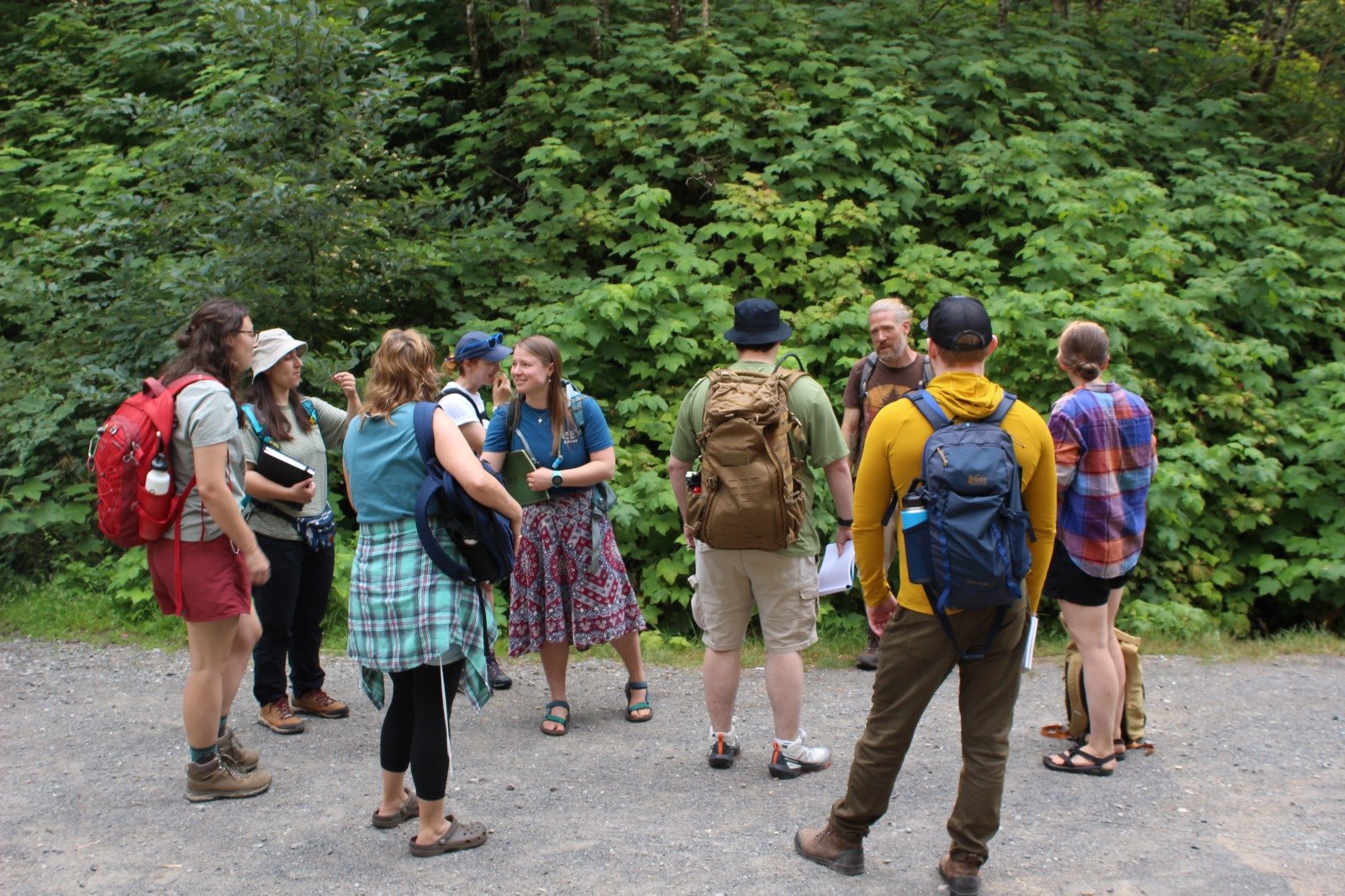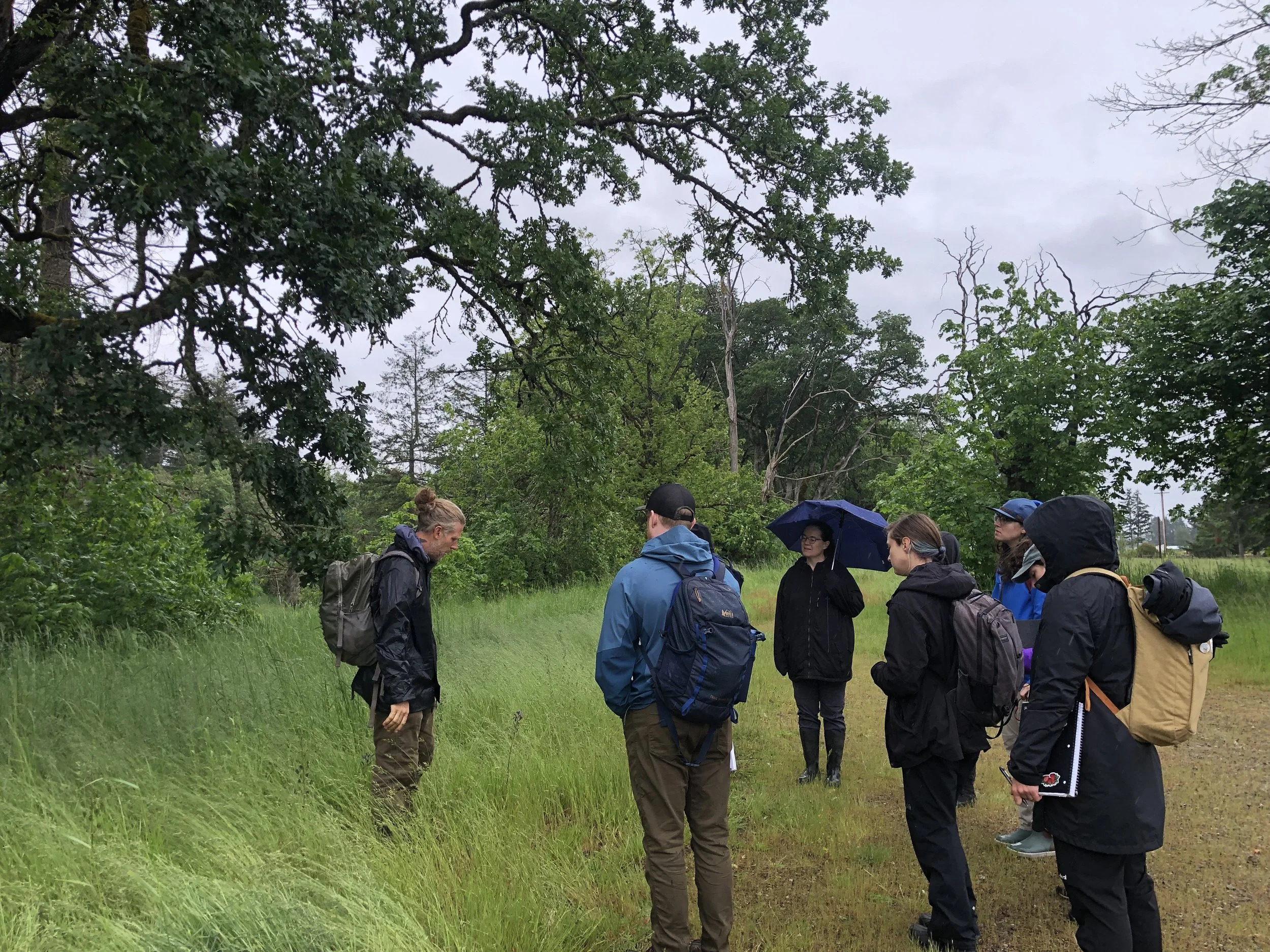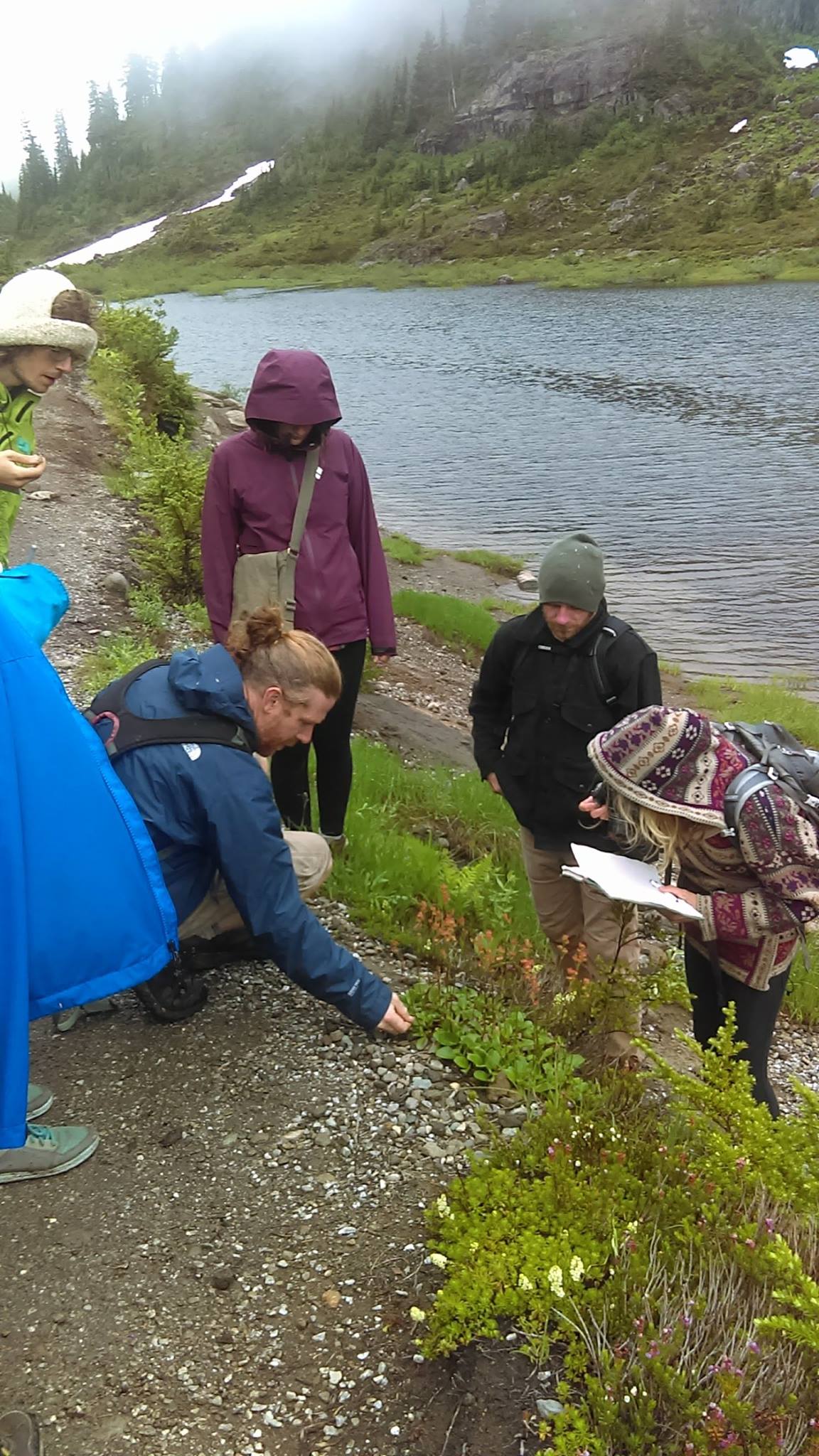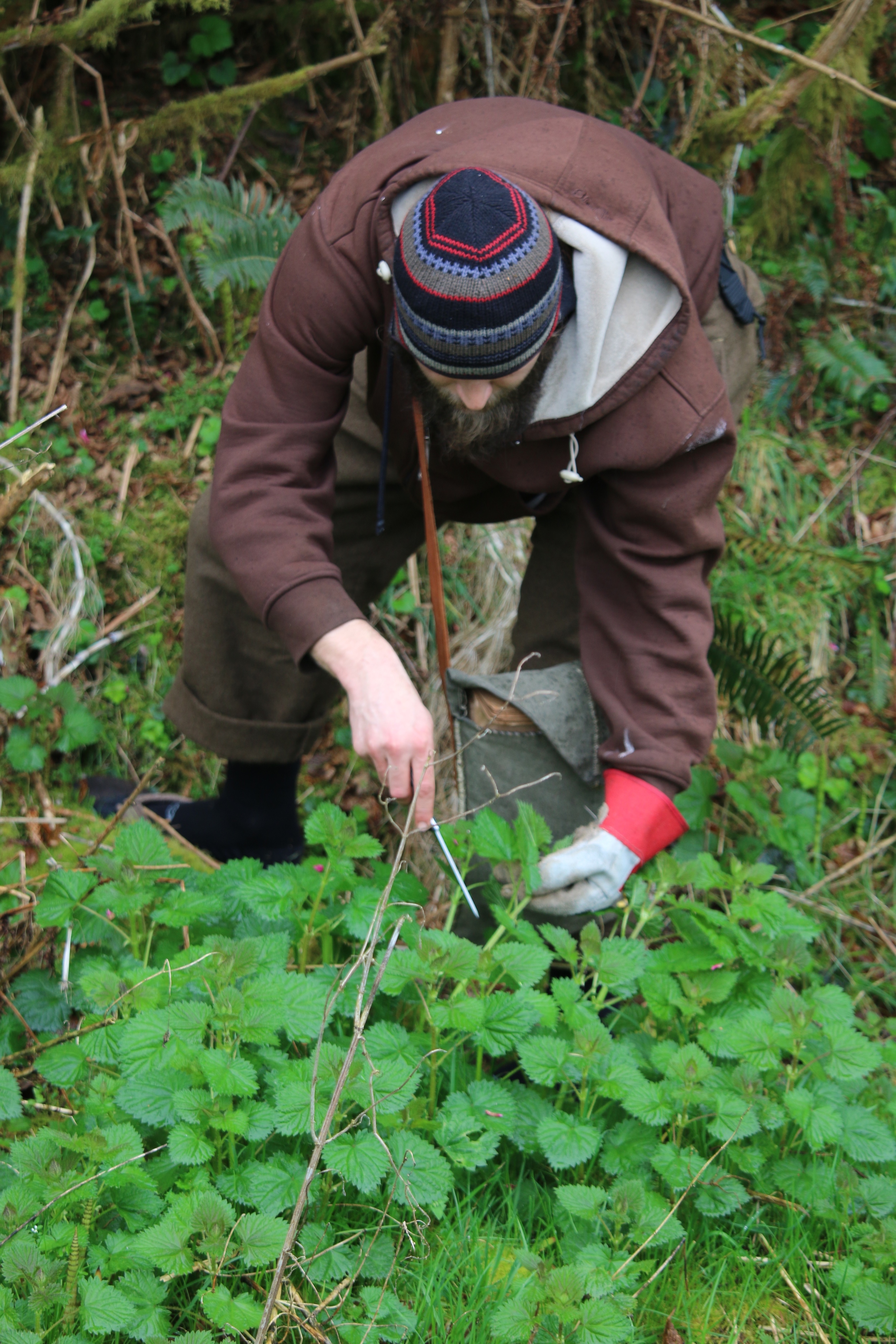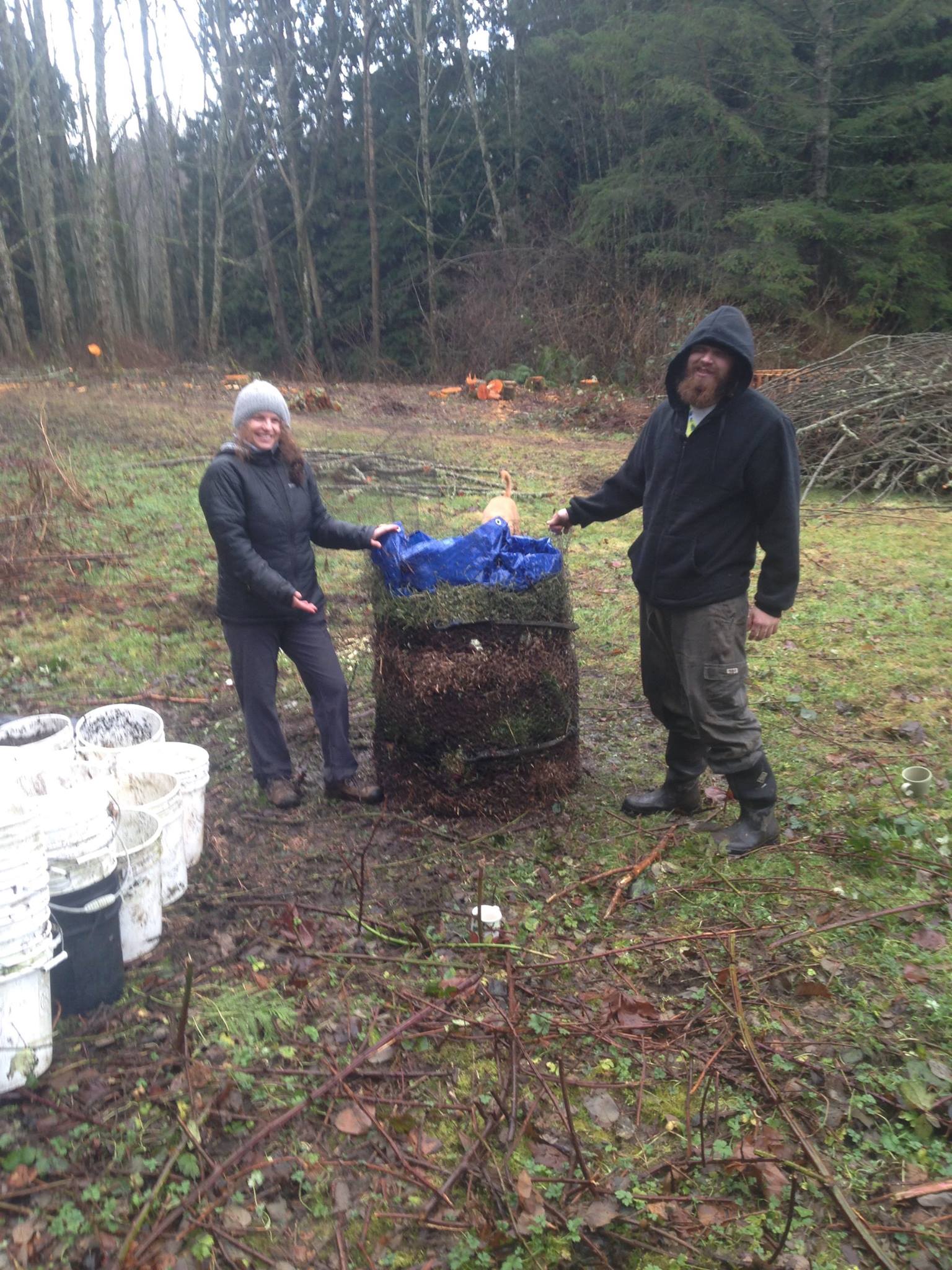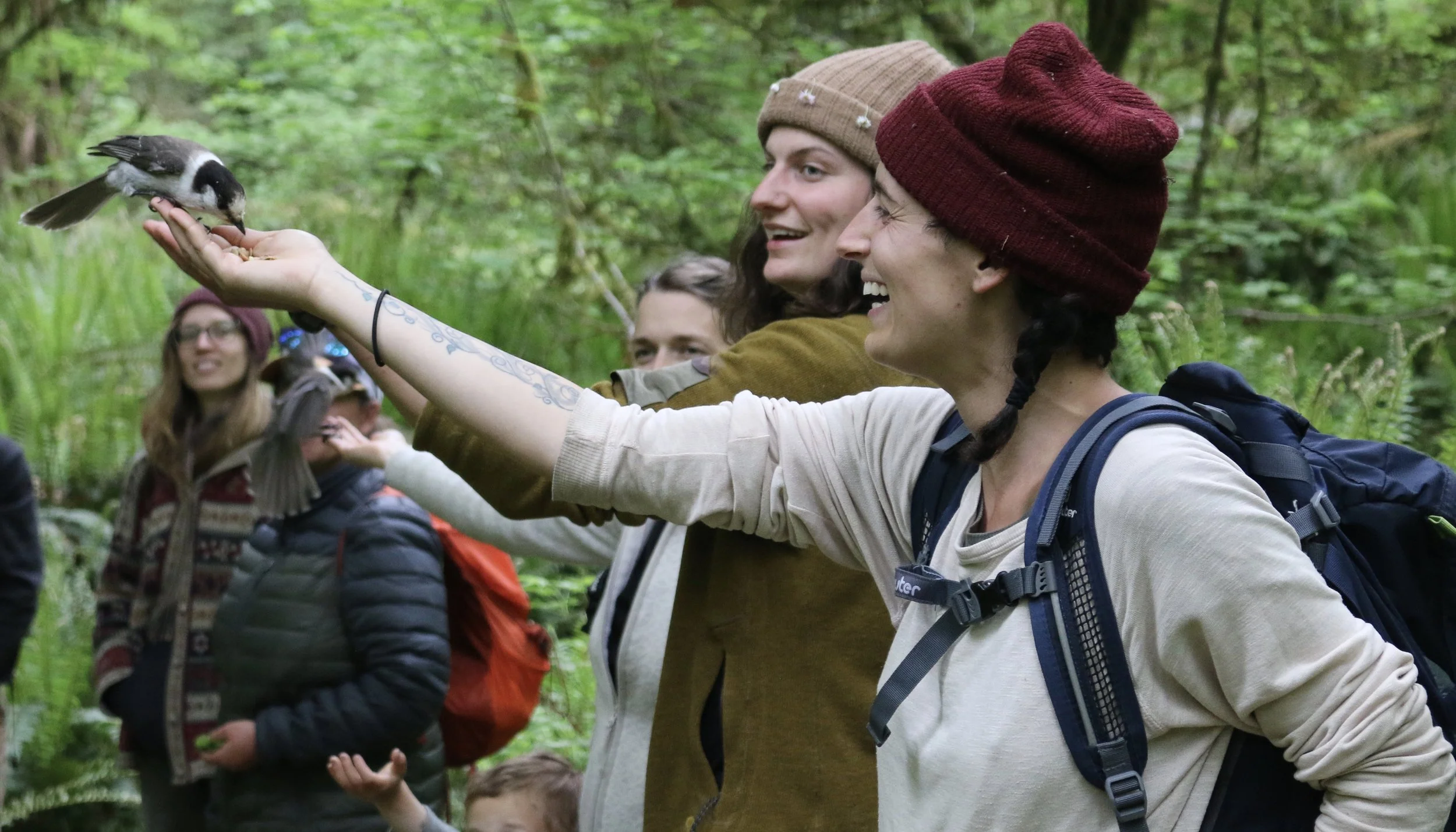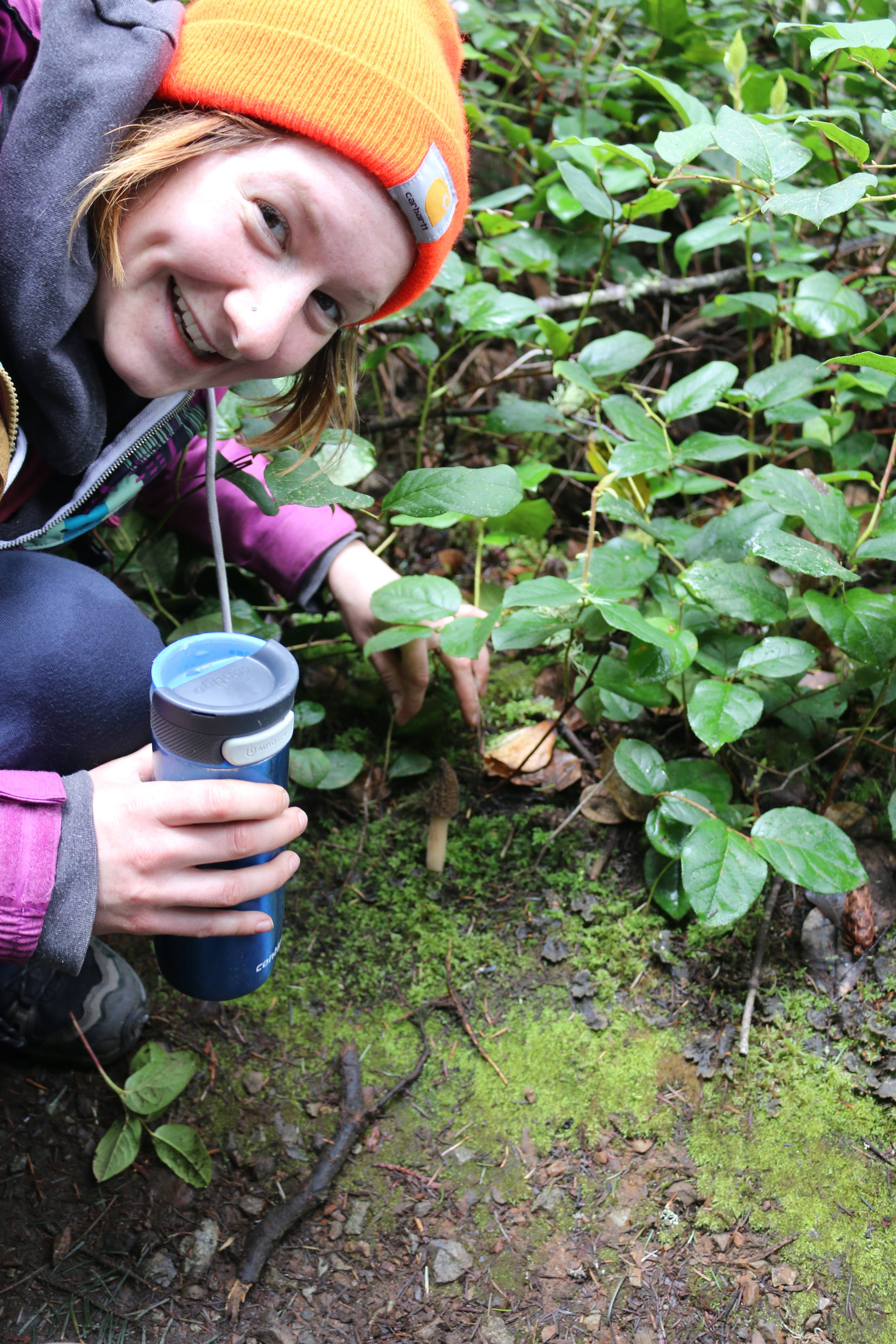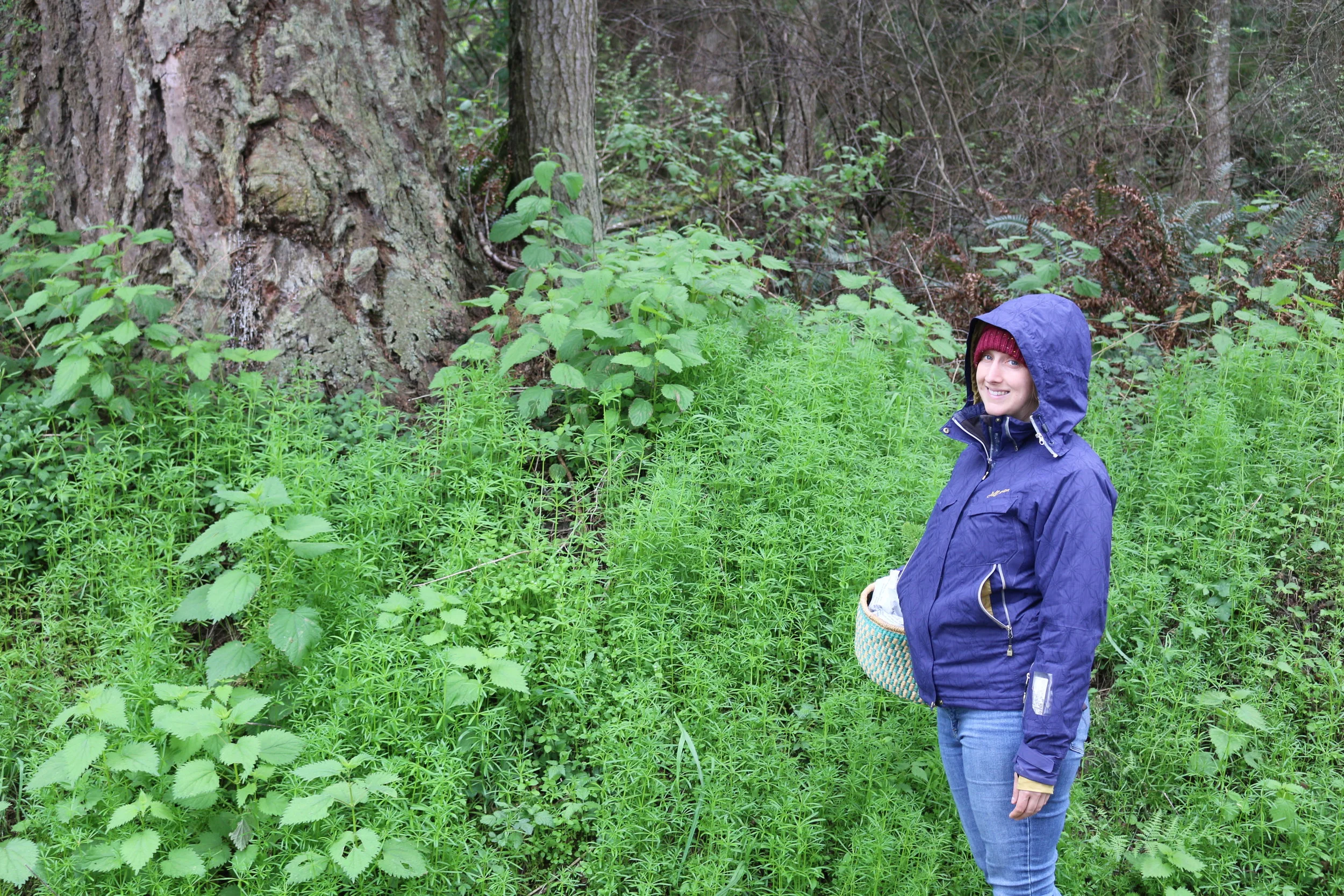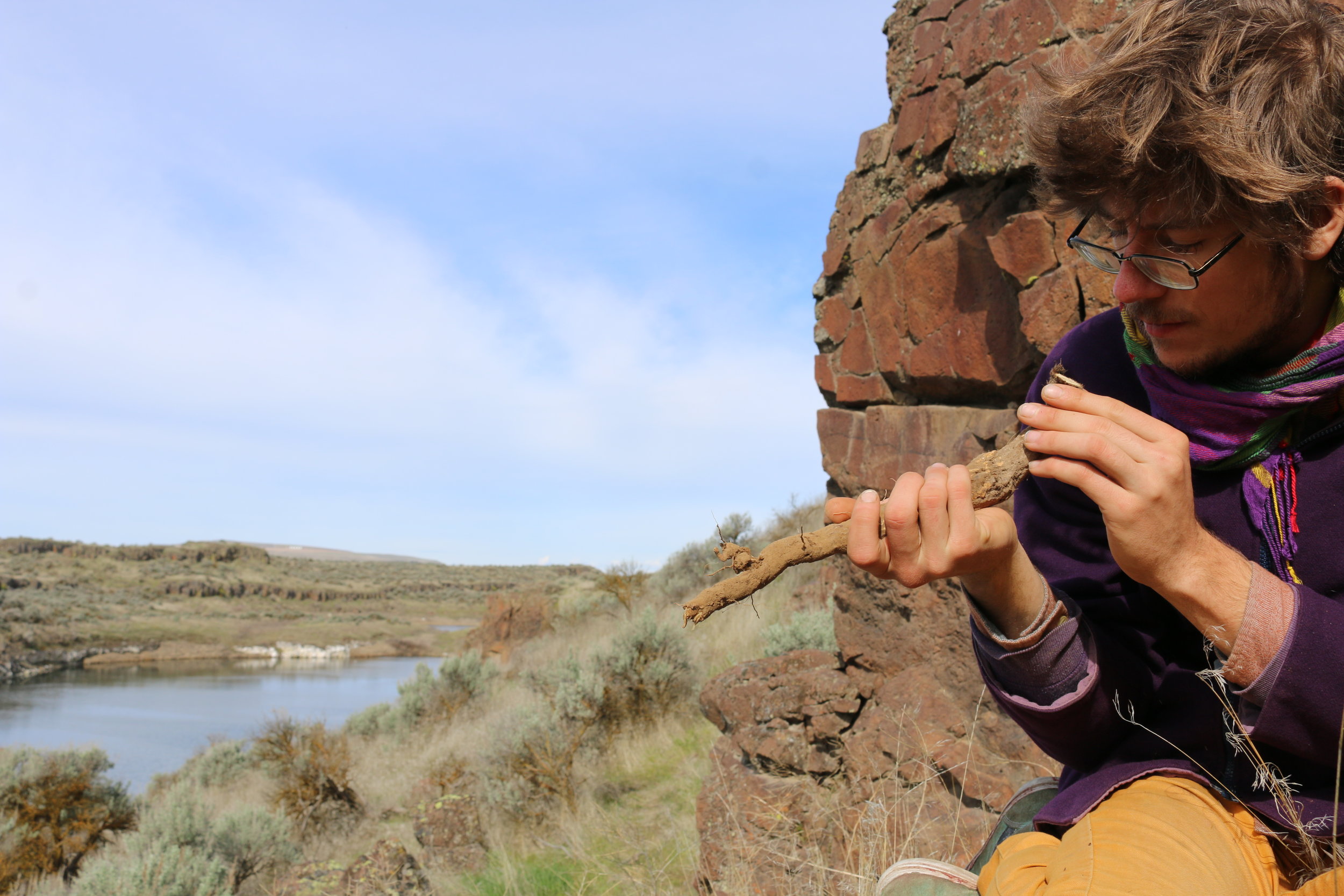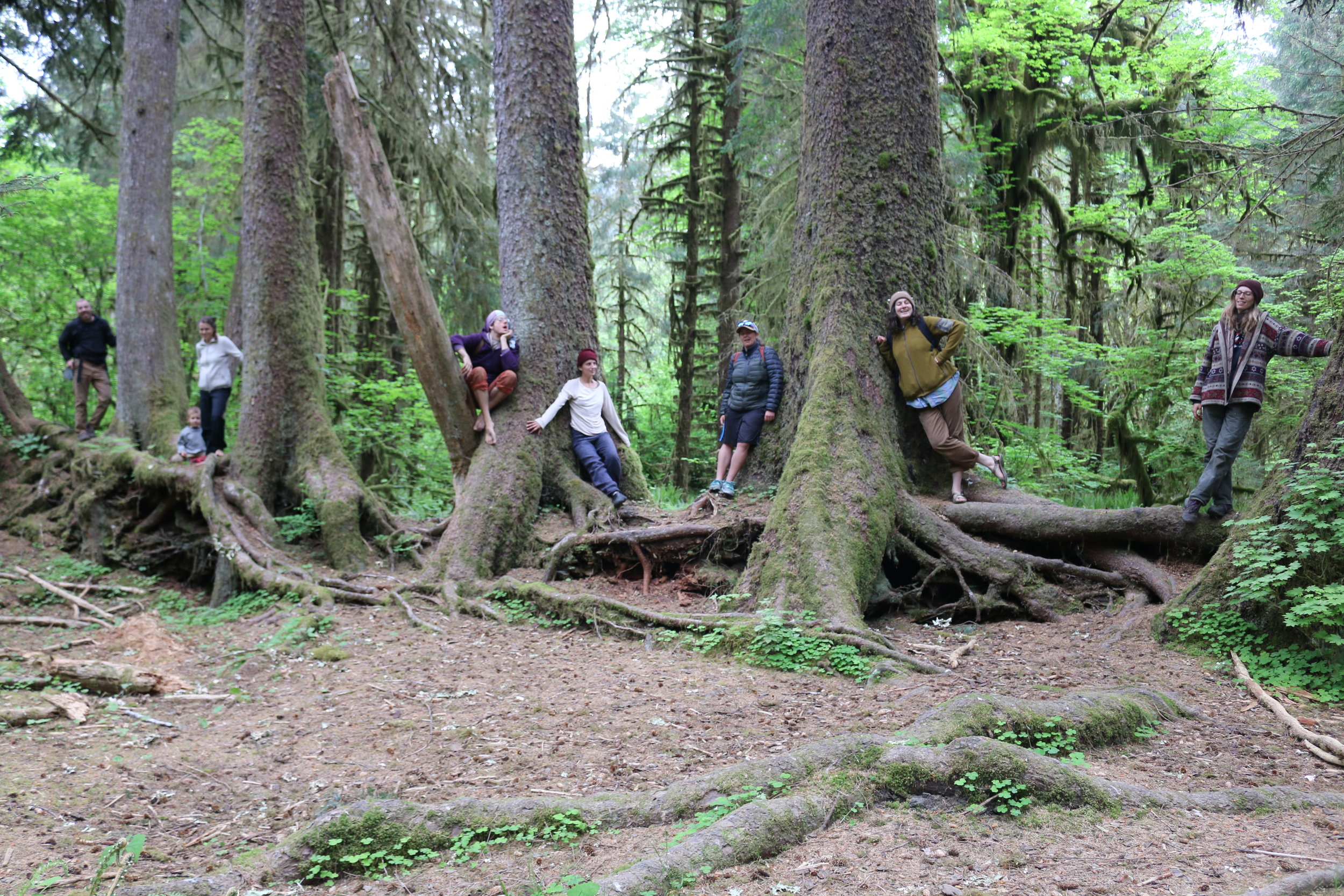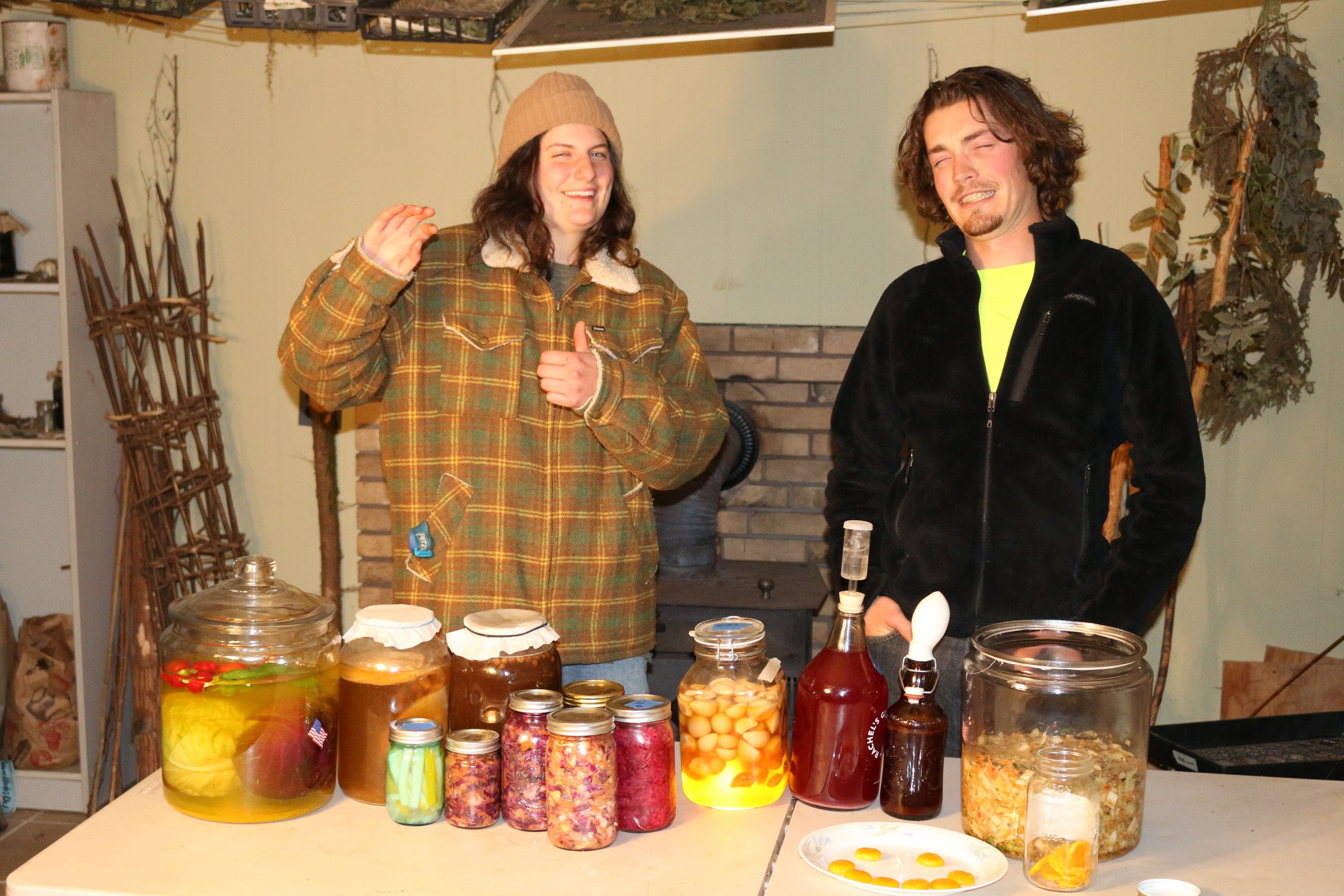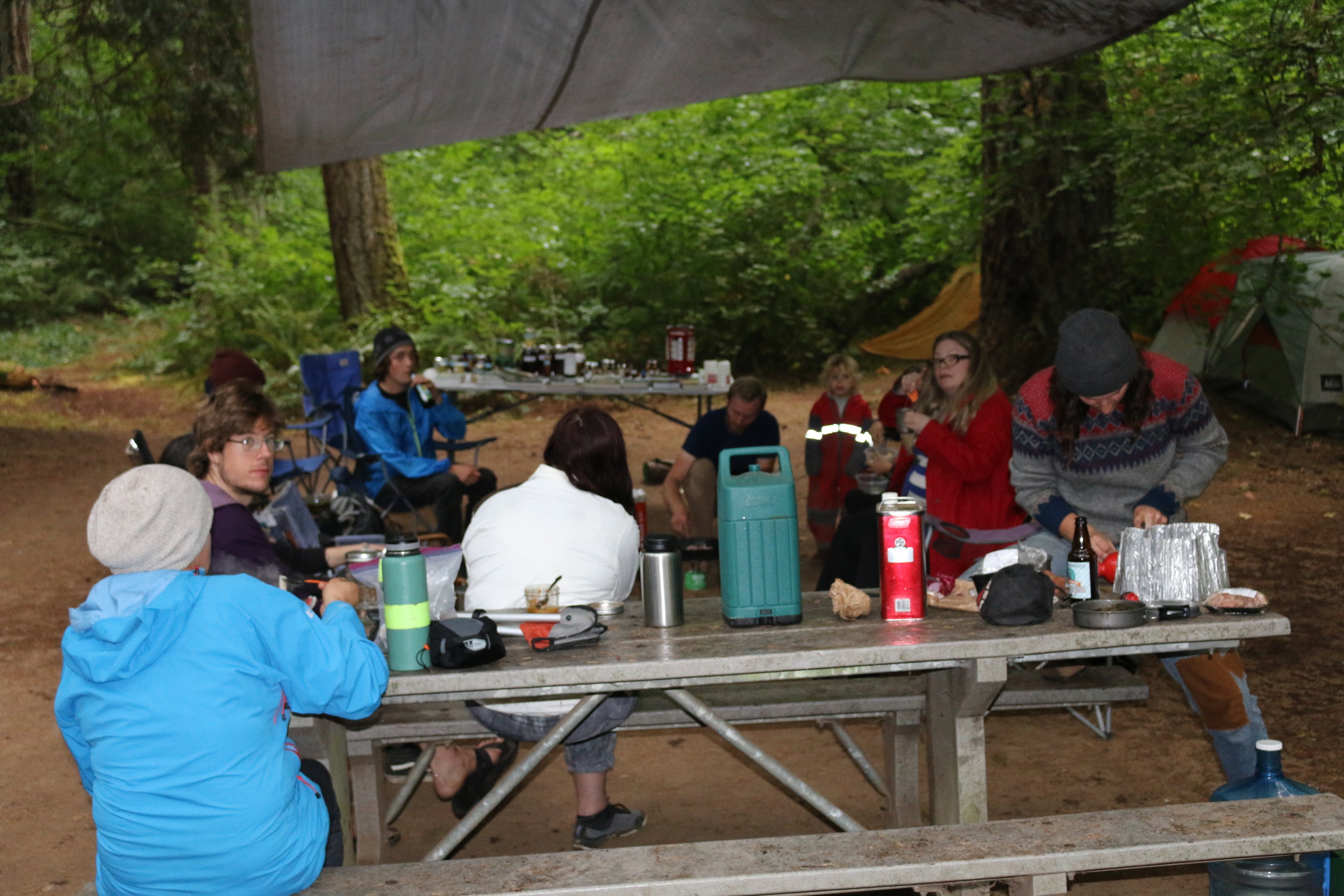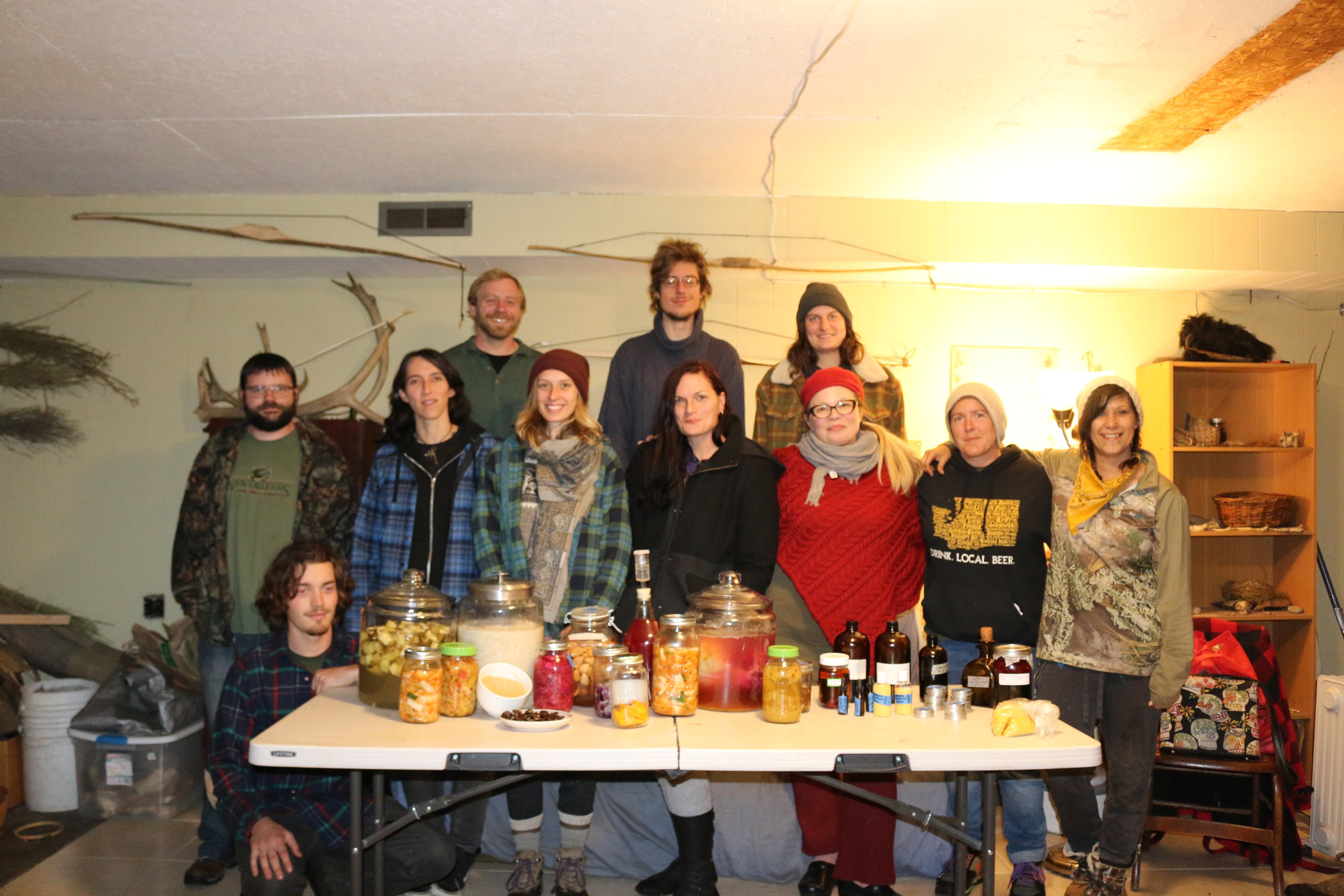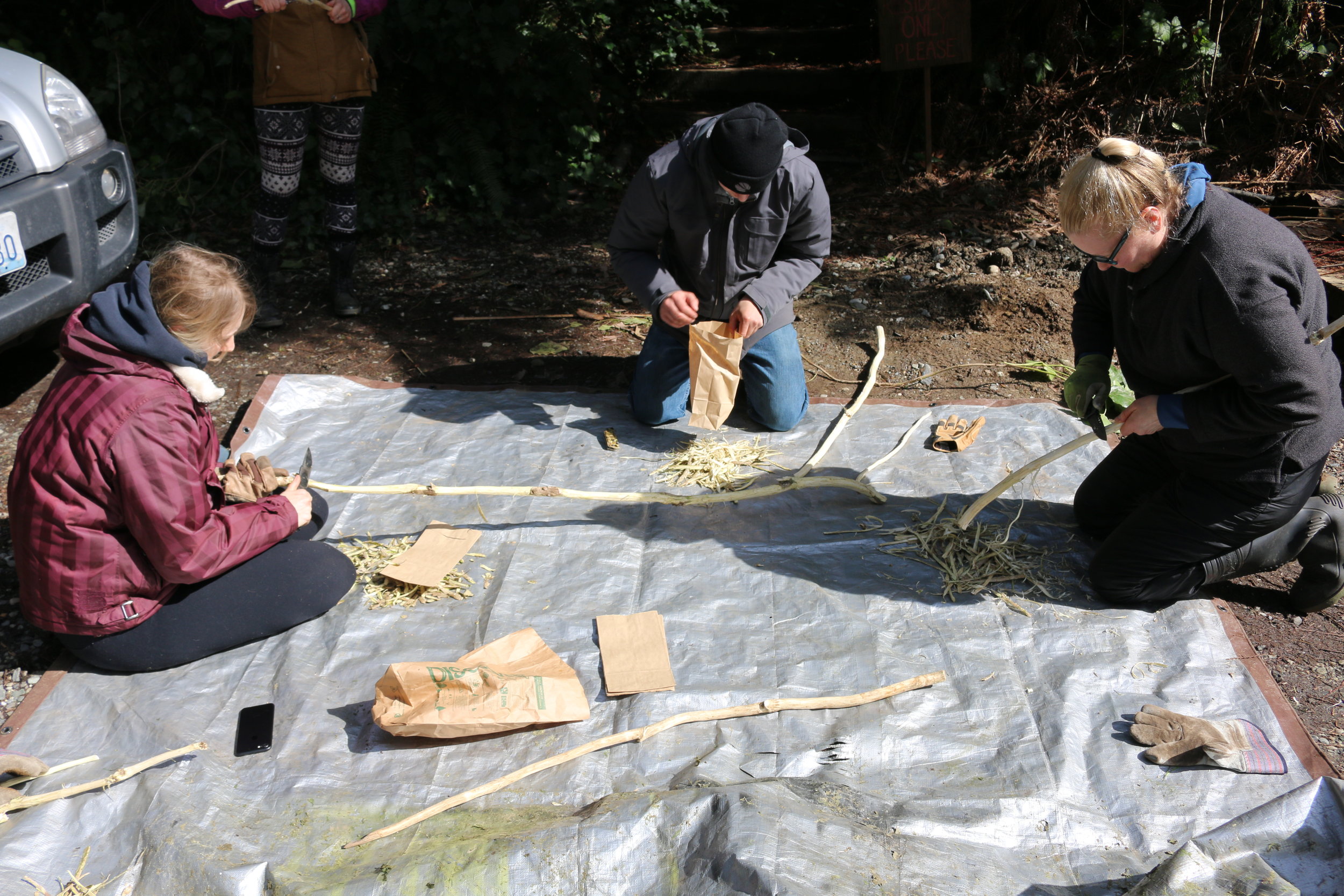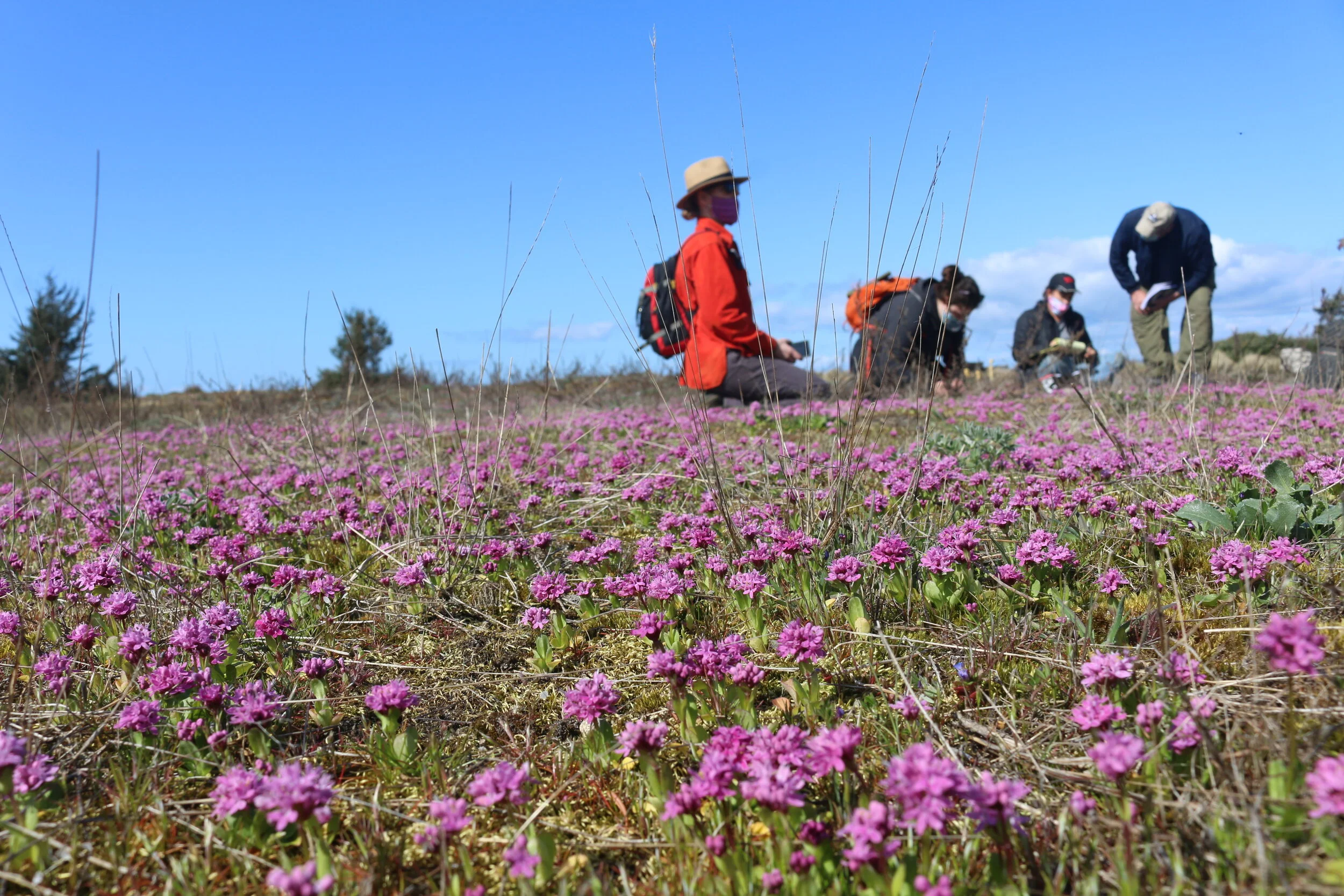Course Overview:
More than just a basic foraging class…
Ethnobotany is the study of traditional human-plant interactions, including the use of plants for food, medicine, materials, and spiritual connection. Our Ethnobotany Immersion Course is designed to help you build deep relationships with over 200 of these useful plants that grow wild in Washington State! Find the full course description below!
Course Duration:
This course includes one class per month for ten months. Participants can register either for the full ten-month course, or for individual weekends! Expect about 6-8 hours of instruction on Saturdays, and 5-7 hours on Sundays. View the full schedule and dates for the upcoming course here.
Locations:
The location of these classes varies depending on the month. We work hard to include as many of the various plant communities of Washington as possible. Locations will include Bellingham, Deception Pass Area, the Methow Valley, Southwest Washington, the Olympic Peninsula, and Mount Baker. Group Campsites for participants are included in the course fee for each weekend!
Cost:
Individual weekends: $300.
Full 10-week immersion program: $2500.
The fee includes the cost of camping on Saturday nights, and the cost of materials for the plant medicines and foods that you will be taking home from class! A a deposit of $250 is required after registration. There are only 15 spots available for this course, and this course comes with three instructors so participants will receive plenty of individual instruction!
If you have another person who wants to sign up with you, we offer a $250 referral bonus!
Instructors:
Elisha Klco, Jeanette Wickell, Theodore Hoss
Guest Instructors: Reisha Beck and Gabe Garms
Full Course Description:
The Ethnobotany Immersion Course has been the flagship program here at Raven’s Roots for the last 11 years now and we couldn't be more excited to begin our 2026 cohort of ethnobotany classes. Our instructors have a deep passion for plants, harvesting ethics, perennial food crops, utilitarian plant uses, and natural medicines specifically. They have spend countless hours in the field studying Washington's native and naturalized plants and trees. This course is designed to share that knowledge with you!
Over the course of this 10 month immersive experience, we will study and identify plants at every stage of their growth cycle, and discover how they interact with all of the other elements in the ecosystem around them (soil, invertebrates, wildlife, etc…). We'll learn how to make plant based medicines, personal care products, baskets, and primitive tools. Techniques will also be demonstrated for the preservation and storage of all of our food/medicine once it has been harvested. All participants will get to go home with various tinctures, salves, and fermentation starter cultures (and if you don’t know what any of those things are we will teach you)!
Participants must register to register for this course. Once you are registered for the immersion course, we will schedule a personal consultation with you to make sure that you get everything that you want and more out of the course. An invoice for the course fee will be sent following the consultation. There are no pre-requisites required to register, and we welcome applications from anyone regardless of skill level.
Every class will have at least 2 instructors so that we can better accommodate students at different skill levels (so don't worry if you're either a beginner or someone who already has some experience, because we cater to both). Class size will be capped at 15 this year so that you can receive plenty of individual instruction.
Here are some of the topics that will be covered:
Harvest schedule: We'll go out in the field together throughout the 10 months and learn about the plants, and when to harvest them to make medicines and teas.
Plant Identification: Not only will we talk about identification during every part of the course, we'll also discuss guilds and relationships between certain plants and species which share their habitat.
Natural medicine making: You'll learn what you need to make an wide array of natural medicines and how to use them.
Food Preservation: Fermentations and probiotics, teas, cooking herbs, drying.
Plant based soaps and lotions.
Home Growing: Growing your own medicinal and edible plants in a permaculture environment. Wildlife attracting plant communities
Fungi: Identification of Medicinal and edible mushrooms and the process for cooking them or making then into medicine.
Practical Uses of Plants: Utilitarian uses of native and naturalized plants: fibers, dyes, baskets, cordage and primitive tools
Human physiology and herbalist terminologies.
Fermentation: We will demonstrate fermentation using wild ingredients and perennial vegetables. We’ll show you how to make traditional recipes from around the world using local ingredients.
Medicinal syrups, hydrosols, and infused vinegars.
Our goal is to give students a value significantly more than what they paid for in tuition. We strive to ensure that every participant goes home feeling like the received great wisdom, a fun and engaging experience, and a closer connection to the natural world and fellow participants.
To Register, click the button below and we will contact you within two days via phone or email. If you have any questions, feel free to contact us directly at info@ravensroots.com. Hope to see you in March of 2026!

